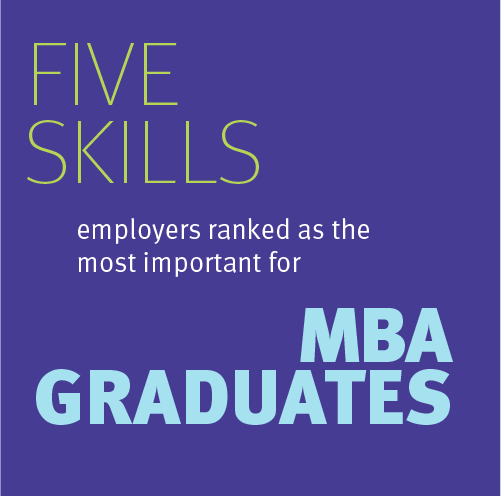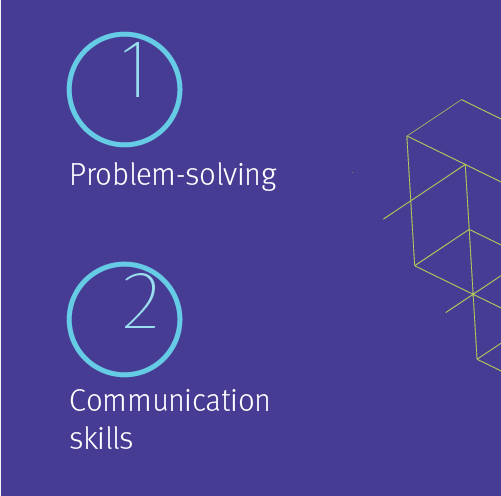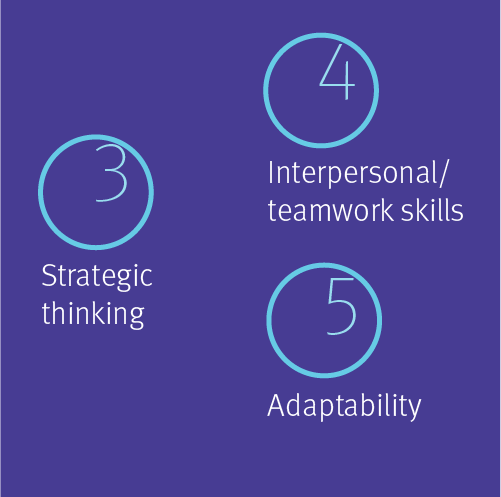> HIGHER SALARY POTENTIAL
> MANAGEMENT AND LEADERSHIP SKILLS
> CAREER CHANGE
> GAIN ENTREPRENEURIAL SKILLS TO START OR GROW YOUR BUSINESS
> NETWORKING
> PERSONAL DEVELOPMENT
> WELL-REGARDED QUALIFICATIONS ALL AROUND THE WORLD
Updated: March 2025
Thinking of doing an MBA? Here we cover the what, when, how and why of studying an MBA in Australia.
Your choice to pursue an MBA degree will be determined by various factors including your current position and where you want your career to go in the future, how much time you can apply to study, along with your desired expectations in terms of industry and experience.
The Master of Business Administration (MBA) is widely regarded as the preferred qualification for professionals wanting to pursue a career in strategic management. Earning an MBA will provide you with the expertise, skills, and ethical standards needed to navigate and succeed in the world of business. You’ll be able to execute a variety of business management strategies aimed at creating an ideal, incentivised, and productive workplace throughout a variety of roles and sectors (depending on your personal preferences and educational background, of course).
An MBA is an investment in the next step of your career progression. It can add value in terms of employability, earning potential and the practical and theoretical insights you gain into what it takes to make small and large business environments flourish.
The MBA landscape in Australia has been witnessing significant growth and transformation in recent years. With a strong economy and a reputation for quality education, Australia has become an attractive destination for aspiring business professionals. Our course focuses on practical learning, industry connections, and global perspectives, preparing graduates for leadership roles in a rapidly changing business environment.






Although it can vary from institution to institution, a full-time MBA degree will generally span over six trimesters, or on average two years. Within this time, you can choose to complete a general MBA, an MBA specialisation or an MBA dual specialisation. An accelerated study option is sometimes available depending on subject offerings.
This will vary from institution to institution. At Kaplan Business School, an Australian bachelor’s degree is required for admission into an MBA, although school results, TAFE or VET qualifications, work experience and informal study will also be taken into consideration.
For international students, an Australian bachelor’s degree or equivalent is required. Students will need to have their overseas qualification assessed by the Department of Education and Training and considered equal to the postgraduate entry requirements.
International students will also have to meet English language requirements. For students who don’t quite meet the level of English proficiency required, there is an option to study an English for Academic Purposes course.
The cost of undertaking an MBA will, vary based on your chosen institution. According to MBA News, the average cost of an MBA in Australia (based on 100 MBA courses across the country) is just above $57,000. For international students, the average cost is over $67,000.
It’s always best to consult with a facilitator to find the course best suited to where you want to study in Australia, what you’re looking for in a business school or university, and your desired learning outcomes.
For more information about the costs of studying for an MBA at Kaplan Business School, please refer to our Fees & Entry Requirements.
MBA (General)
What you’ll learn:
Best suited for:
MBA (Specialisation)
What you’ll learn:
Best suited for:
MBA (Dual specialisation)
What you’ll learn:
Best suited for:
What are the different types of delivery modes?
Most institutions offer an MBA in a variety of delivery modes to suit your needs and lifestyle.
Full time
Benefits:
Best suited for:
Part-time
Benefit:
Best suited for:
Online
Benefits:
Best suited for:
Is an MBA degree right for me? What impact will it have on my career? The MBA is an investment in your career and whether it’s right for you will depend on your individual goals. Below are some of the top reasons graduates and working professionals choose to pursue an MBA.
High salary potential
Whether you decide to become a specialist or generalist, equipping yourself with the skills and knowledge on what it takes to manage a business will provide you with further opportunity to access executive-level roles and upscale your income. In fact, according to a study conducted by MBA News, students anticipated an average of 30% increase in earnings after undertaking the MBA.
According to the 2024 Corporate Recruiters Survey from the Graduate Management Admissions Council (GMAC), the median starting salary for MBA graduates at US companies were estimated to be around $120,000 which is 75% higher than those with a bachelor's degree. Your expected salary after receiving your MBA will still depend on a number of factors such as industry, job location, the school you graduated from and years of relevant work experience.
Management and leadership skills
From consultant and entrepreneurs, to aspiring business owners and those working in larger corporations, undertaking the MBA will enhance your problem-solving and analytical skills, interpersonal and communication skills and ability to think creatively and critically. It will boost your time management, financial management, and project management skills, harness your ability to think ‘big picture’, to forecast, minimise risks, and consider opportunities for growth within your respective market – all essential qualities for good leadership and management.
Career change
An MBA can be a great qualification to help professionals who are looking to change their career direction. That’s because it provides graduates with a solid foundation in general business, leadership and management skills that are applicable across a range of industries and job functions. Read more on how to change careers with an MBA.
Gain entrepreneurial skills to start or grow your own company
Become your own boss and create your own success by learning the skills, foundational tools, and ability to think both creatively and critically to build a successful business.
Networking
By undertaking the MBA, you’ll have access to a highly-experienced faculty, classmates, and business executives that you’ll meet during your degree and internships. Building a business network in Australia can help connect you with opportunities, and offer support, throughout your career.
Personal development
By undertaking an MBA, you’re not just investing in your career. You’re also acquiring skills in time and financial management that can assist in setting life goals, maintaining a work/life balance and forecasting your future. Additionally, international students in Australia have a chance to expand their horizons and experience a new place, culture and way of thinking. Many MBA colleges have a diverse group of students who will bring alternative business perspectives. The curriculum will often involve group projects and interactive workshops for students to learn from each other.
An MBA is well-regarded all around the world
By obtaining a universally-known degree, you’ll have the opportunity to work outside of the parameters that you’re used to, explore a variety of opportunities in and outside of Australia, and potentially live and work within different cultures and environments.
> HIGHER SALARY POTENTIAL
> MANAGEMENT AND LEADERSHIP SKILLS
> CAREER CHANGE
> GAIN ENTREPRENEURIAL SKILLS TO START OR GROW YOUR BUSINESS
> NETWORKING
> PERSONAL DEVELOPMENT
> WELL-REGARDED QUALIFICATIONS ALL AROUND THE WORLD

Career climbers
Ambitious managers with work experience who want to grow professional skills to attain a promotion and/or access higher salary potential
Knowledge builders
Graduates or managers who want to build management and leadership skills, leading to enhanced career opportunities and job satisfaction
Career shifters
Professionals looking for a career change who want to leverage the learning and skills offered through an MBA to start in a new industry or function
Entrepreneurs
Ideas people who want to gain entrepreneurial skills to start or grow their own company
Connectors
Professionals who want to expand their business networks and engage with people from various business backgrounds/walks of life
Global nomads
Professionals looking for flexibility and global experience, who recognise the value an MBA has within the global marketplace
Here are some of the main reasons why MBA students choose to study in Australia:
*UN's Human Development Report, 2023-24.

Age should never be a factor when considering the best time to undertake an MBA in Australia. In fact, many professionals specifically opt to return to study an MBA in various stages of their careers, especially after they have gained their desired amount of industry and life experience.
Those who have just completed their undergraduate degrees can equally benefit from undertaking the MBA to fast-track their career progression.
Here are some questions you can consider answering:
A business school is an independent private higher education provider. Kaplan Business School, for example, offers nationally accredited diploma, undergraduate and postgraduate level courses in business-related areas.
On the other hand, the (mostly public) universities in Australia must be at least 85% self-accrediting and offer undergraduate and postgraduate courses across a minimum of three different fields of study. You cannot have a university that offers only business programs, for example. They are required to provide a broader spectrum of degrees and staff are required to research in addition to teaching. Unlike other providers, universities also offer doctoral and master’s degrees by research.
Some other key differences:
Institution size
Universities can be huge, with thousands of students on one campus and can offer many different clubs, societies and facilities. Business schools tend to be much smaller, with more student support, less staff and reduced class sizes. These can lead to a more individualised, personal teaching environment with greater one-on-one attention.
Industry connections and work placement
Although this is no longer true of the more modern universities, older universities tend to focus on academic outcomes. On the other hand, the reputation of a business school is based heavily on student support and the performance of their graduates in the workforce rather than the research of their academics.
Entry requirements
Each institution has specific entry requirements for courses. If you are not eligible for the course of your choice, you can enrol in a preparation course or a diploma at a business school or other education provider and then potentially transfer into a bachelor’s degree. Universities often do not offer these courses, but they do accept articulations from specific colleges or schools.

Are you a generalist? Or a specialist?
Although all MBA options will provide you with transferable skills that can be applied across various industries, an MBA with a specific specialisation provides you with more in-depth knowledge of your specialised area.
At KBS for example, rather than choosing six electives as part of a general MBA, you will choose three electives, and study three specialisation core subjects.
You also have the option of completing a dual specialisation. This enables you to graduate with two specialisations, without having to complete any extra subjects. If you’re focused on a career in one area, this means you will graduate with a unique skill set that could help you stand out to potential employers in your field.
On the flip side, the general MBA gives you the flexibility to tailor your MBA to include subjects available across all specialisations, which means you can pick up skills, tools and knowledge from a wider range of interest or career areas.
At KBS, you can choose from the following MBA specialisations to progress your career:
Essentially the choice of general MBA versus MBA specialisation comes down to your unique interests and how sure you are of your career trajectory.
Undertaking an MBA degree will provide you with the principles and practices of good management and leadership. In addition to this, you’ll become fluent in finance management, time management, and develop lifelong leadership and influencing skills to be able to execute career advancement.
The structure of the MBA consists of several core subjects (aimed at providing you with essential knowledge in management, accounting, economics, strategy, and operations) and a number of elective subjects (which tend to complement the industries you aim to engage with).
Undertaking the MBA also provides you with much-coveted industry insight and connections, presentations from industry guests who have real world experience, professional networking, work placement opportunities and personalised employment services.
It’s not just about handing in assessments. Below are some ways to get the most out of your MBA.
Maximising support services
It will be important to network with industry professionals you’ll have access to, staff and faculty, and classmates, who will become a lifelong support network to tap into. Other services available for MBA students include career hubs where Career Advisors can connect you with internships, workshops and job opportunities. There are academic learning centres that can help you help with English skills and academic research and writing.
Being proactive
Hone your communication skills by reaching out to the right people at the right opportunity, attending networking events, and liaising with professionals within your field.
Completing your prep work for each subject
The more you read, the stronger your foundational knowledge will be when you enter the next career phase. Completing your prep work will give you a deeper understanding of complex issues and allow you to engage much more effectively in class discussions.
An MBA degree is a serious commitment. To get the most out of your experience and maintain a healthy and fulfilled lifestyle, time management will be an essential skill to master.
For a full-time MBA, you are looking at a time commitment of around 34 hours a week, including class attendance and self-study. You will need to learn to manage assignment deadlines, full-time/part-time work, family and friends, as well as allow time to relax and recharge.
Below are some top tips to help you manage your study/work/life balance.
Planning
This includes taking time to schedule your day or week by prioritising important tasks, dedicating time blocks to certain activities, and avoiding distractions. Equally as important is to have a set hour that you’ll switch off from work to enjoy your family and loved ones, favourite hobbies and sports, or take time for yourself.
Knowing when you’re at your strongest
Are you more of a morning person? Or tend to think more clearly in the evening? It’s important to understand your natural rhythms to maximise your output and tend to tasks quickly and efficiently while still leaving time to do the things you enjoy.
Eating well
A healthy body can sustain a hefty work schedule! Make sure you are setting time out to enjoy healthy, unprocessed foods throughout the day. For those that are time-poor, meal prepping can be an efficient way to ensure your body is receiving all the vital nutrients it needs to sustain a work/study cycle.
Getting enough sleep
Sleep - If you have an early start, get to bed early. Instead of looking at screens, read a book or do other relaxing activities. Getting enough sleep is very important for physical and mental health.
Scheduling in time for socialising
It’s very easy to panic and cancel your plans when you’re on a deadline or having difficulty balancing work and assignments. This comes down to time management. By planning time in the week to see your family and friends, you’ll still get your work done while reaping the benefits of a flourishing social life.
Goal setting
Building your career takes time. It’s important to set small achievable goals while working towards larger achievements along the way.
Invest in your career progression. Find out more about studying an MBA at KBS as well as the support services we provide to help you achieve your career goals.